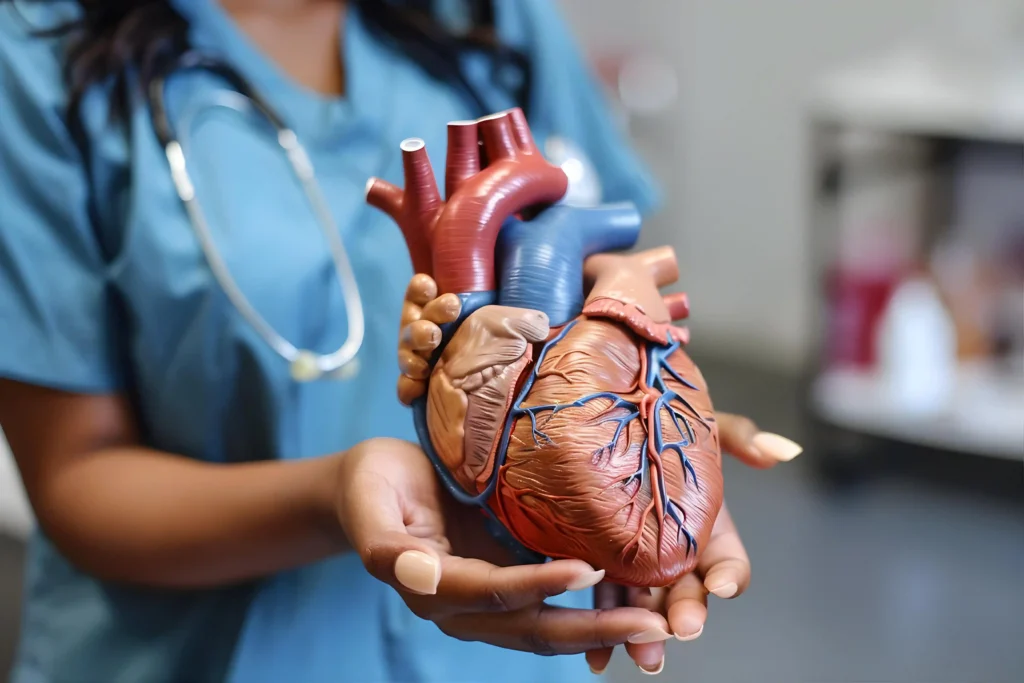What does a Cardiologist do? Cardiology demystified
What does a Cardiologist do? Cardiology demystified
Blog Article
Recognizing the Importance of Cardiology in Modern Medical Care Providers
Cardiology plays a critical duty in modern medical care, specifically as heart disease remains to be the leading cause of death worldwide. Advances in diagnostics and therapy have transformed person care, making it possible for earlier interventions and improved end results. Additionally, the shift towards precautionary cardiology empowers people to manage their health proactively. As technology remains to progress, the assimilation of innovative solutions might additionally redefine cardiology's effect on public wellness, triggering a better evaluation of emerging fads and their ramifications.
The Occurrence of Cardiovascular Disease and Its Influence on Public Health
Heart illness stays the leading cause of fatality internationally, its impact prolongs far beyond individual patients to impact public health and wellness systems and economies. The high occurrence of heart illness places a substantial strain on health care resources, necessitating raised funding for prevention, rehabilitation, and therapy programs. Public health and wellness efforts have to attend to risk aspects such as excessive weight, smoking, and sedentary way of livings, which contribute greatly to the increasing incidence of heart conditions.Moreover, the financial problem linked with cardiovascular disease is immense, incorporating not only direct medical costs but likewise indirect expenditures connected to shed efficiency and premature mortality. Communities encounter challenges in managing these expenses, often leading to differences in health care access and results. As the population ages and lifestyle-related risks remain to escalate, the urgency for effective cardiology treatments becomes critical. Subsequently, dealing with heart condition is not just a matter of private wellness yet additionally an important public health concern.
Developments in Heart Diagnostics and Imaging Techniques
Recent developments in cardiac diagnostics and imaging methods have reinvented the field of cardiology, enhancing the capacity to detect and keep track of cardiovascular disease. Strategies such as heart MRI, CT angiography, and echocardiography have come to be progressively innovative, offering detailed pictures of cardiac frameworks and features. These techniques permit the early identification of conditions like coronary artery disease, heart failing, and valvular disorders.Moreover, innovations in non-invasive diagnostics, such as wearable technology and remote monitoring tools, have equipped people and medical care providers. These devices promote real-time tracking of heart rhythms and various other vital indications, leading to timely interventions. Furthermore, expert system is being integrated right into imaging analysis, improving accuracy and efficiency in diagnosis.
Innovations in Therapy Alternatives for Heart Conditions
Current innovations in cardiology have actually resulted in considerable technologies in therapy options for heart disease. These consist of sophisticated surgical methods that boost step-by-step outcomes and arising medications that use brand-new avenues for treatment. As the field advances, these technologies play a crucial function in enhancing patient treatment and end results.
Advanced Surgical Techniques
Technologies in surgical techniques have changed the landscape of cardiology, offering new wish for individuals with heart problems. Minimally intrusive procedures, such as catheter-based interventions, have actually considerably reduced recuperation times and healthcare facility stays. Techniques like robotic-assisted surgical treatment improve accuracy, enabling doctors to navigate intricate anatomical frameworks with higher precision. Improvements in imaging innovation facilitate real-time visualization during treatments, improving outcomes. Transcatheter aortic valve substitute (TAVR) exemplifies an advancement in treating aortic stenosis, allowing valve replacement without open-heart surgical procedure. In addition, hybrid techniques that integrate medical and catheter-based methods give tailored services for various cardiac issues. These sophisticated medical techniques not only enhance person safety and security however also broaden therapy choices, highlighting the critical duty of technology in modern cardiology techniques.
Arising Therapies and medicines
As the landscape of cardiology remains to progress, arising medications and therapies play a critical function in improving treatment choices for heart problems. Innovations such as unique anticoagulants and progressed lipid-lowering agents have changed the management of cardio illness, significantly lowering patient morbidity and mortality. In addition, the growth of gene treatments and regenerative medication uses appealing methods for dealing with conditions formerly deemed irreparable. Medical tests are continuously exposing the efficiency of these treatments, pushing the borders of traditional treatments. The combination of digital health and wellness technologies facilitates individualized medication, allowing for tailored treatment strategies based on genetic and lifestyle variables. Collectively, these advancements highlight the dynamic nature of cardiology, enhancing person end results and redefining requirements of treatment in modern health care.
The Role of Preventive Cardiology in Client Care
Preventative cardiology plays a crucial duty in person treatment by concentrating on the identification of danger factors that contribute to cardiovascular disease. With way of living modification strategies and early detection strategies, doctor can effectively lower the incidence of cardiovascular occasions - Dr Garcia. This proactive method not only improves person results however additionally advertises long-term health and wellness
Threat Factor Recognition
While heart diseases remain a leading source of morbidity and mortality worldwide, reliable threat variable recognition functions as a keystone of preventive cardiology. Determining risk elements such as hypertension, hyperlipidemia, family members, and diabetes mellitus history is important for early treatment. Medical care professionals make use of various evaluating techniques to assess these elements, enabling tailored preventive procedures. In addition, understanding a client's way of living selections, such as smoking and physical lack of exercise, additionally informs danger assessments. This complete evaluation allows medical professionals to develop individualized care plans targeted at mitigating dangers. By prioritizing threat aspect recognition, health care systems can boost person outcomes and minimize the total burden of cardio illness, ultimately adding to boosted public health strategies and source appropriation.
Way Of Living Modification Approaches
A wide variety of research article studies highlights the essential role of lifestyle alteration methods in reducing cardiovascular disease danger. These approaches encompass dietary changes, increased physical activity, smoking cessation, and weight monitoring. By adopting a heart-healthy diet abundant in fruits, vegetables, whole grains, and lean healthy proteins, people can reduce cholesterol degrees and high blood pressure. Normal exercise strengthens the heart and boosts overall cardiovascular health. In addition, giving up cigarette smoking considerably decreases the threat of cardiovascular disease and improves recovery rates for those with existing problems. Weight administration further adds to cardio health and wellness by mitigating other risk variables such as diabetes and hypertension. Implementing these way of life changes not only promotes private well-being yet additionally functions as a cornerstone of precautionary cardiology in client treatment.
Very Early Discovery Strategies
Way of life adjustments substantially add to minimizing heart disease threats, yet they are most efficient when coupled with very early discovery techniques. Preventative cardiology emphasizes the value of recognizing possible heart issues prior to they intensify right into severe problems. Techniques such as high blood pressure surveillance, cholesterol testing, and progressed imaging modern technologies like echocardiograms play essential roles in examining cardio health. Biomarkers and hereditary screening likewise improve the accuracy of very early detection, enabling tailored preventative approaches. Regular cardiac danger assessments equip doctor to intervene proactively, potentially avoiding cardiovascular disease and strokes (Dr Garcia). By integrating these early detection methods right into regular care, people can gain from prompt way of living treatments and targeted treatments, ultimately enhancing and boosting end results lifestyle
Integrating Technology Into Cardiology Practices
As innovations in innovation remain to improve various fields, the integration of cutting-edge devices and systems into cardiology techniques has actually become important for enhancing person care and end results. Telemedicine platforms allow cardiologists to check individuals remotely, improving access to care while lowering the concern on health care centers. Wearable devices, such as smartwatches, enable continuous heart price surveillance, notifying both patients and physicians to possible issues in real-time. Furthermore, artificial knowledge (AI) is being utilized to evaluate substantial quantities of heart data, helping in early medical diagnosis and tailored treatment plans. Advanced imaging techniques, including 3D echocardiography, enhance visualization of heart frameworks, resulting in a lot more specific treatments. Digital wellness records (EHRs) simplify client info monitoring, making certain that cardiologists have prompt accessibility to crucial data. With each other, these technical innovations are changing cardiology, advertising proactive administration and improved health outcomes for people with cardio conditions.
The Value of Person Education and Engagement
Individual education and learning and engagement play an essential function in the monitoring of cardio health. By gearing up clients with understanding regarding their problems, treatment choices, and way of life changes, doctor encourage people to take an energetic duty in their care. This aggressive method can cause enhanced adherence to suggested drugs, dietary changes, and workout programs, inevitably reducing the danger of complications.Engagement additionally promotes a strong patient-provider connection, motivating open communication and trust fund. When patients feel educated and involved, they are extra most likely to voice concerns and ask inquiries, which can cause far better scientific results. Furthermore, academic resources, such as workshops or digital platforms, can enhance understanding and promote self-management methods. Generally, prioritizing individual education and learning and involvement is important for improving cardiovascular health, enhancing lifestyle, and lowering health care costs connected with cardio diseases.
Future Trends in Cardiology and Their Prospective Effect

Often Asked Questions
What Way Of Life Modifications Can Decrease Cardiovascular Disease Threat?
The present inquiry addresses way of living adjustments that can significantly reduce cardiovascular disease threat. Cardiology care. Adopting a balanced diet, engaging in normal exercise, maintaining a healthy and balanced weight, managing stress, and staying clear of cigarette can especially boost cardiovascular health
Just How Can I Acknowledge Very Early Indicators of Heart Issues?
Recognizing early indicators of heart issues includes monitoring symptoms such as upper body pain, shortness of breath, tiredness, and uneven heartbeat. Timely understanding of these indications can prompt necessary medical assessment and intervention for better results.
What Are the Distinctions Between Cardiologists and Cardiac Surgeons?
The differences between cardiologists and heart cosmetic surgeons exist in their functions; cardiologists primarily diagnose and manage heart conditions with non-invasive approaches, while cardiac surgeons carry out medical treatments to remedy architectural heart problems. Each plays a vital, unique function.

Just how Usually Should I Get My Heart Wellness Checked?
The frequency of heart wellness checks differs based upon individual danger elements. Typically, grownups must undergo examinations each to 2 years, while those with status quo might require even more frequent assessments as recommended by medical care professionals.
What Role Does Genetics Play in Heart Problem Threat?
Genes considerably affects heart problem danger, with domestic patterns indicating acquired conditions. Particular genes can predispose individuals to hypertension, cholesterol issues, and other cardio problems, highlighting the value of hereditary testing in evaluating heart health. Heart condition remains the leading cause of death around the world, its impact extends far beyond individual clients to impact public wellness systems and economies. Public health campaigns have to attend to risk factors such as obesity, smoking, and sedentary lifestyles, which add substantially to the climbing occurrence of heart conditions.Moreover, the financial worry associated with heart disease is tremendous, incorporating not only straight medical prices but additionally indirect expenditures related to shed productivity and premature mortality. Precautionary cardiology plays an essential duty in patient care by focusing on the recognition of danger elements that contribute to heart disease. Man-made knowledge (AI) and device discovering are improving diagnostics and individual monitoring, making it possible for early detection of heart diseases. The distinctions between cardiologists and cardiac cosmetic surgeons lie in their functions; cardiologists mainly identify and take care of heart problems through non-invasive techniques, while cardiac specialists carry out medical procedures to fix architectural heart issues.
Report this page